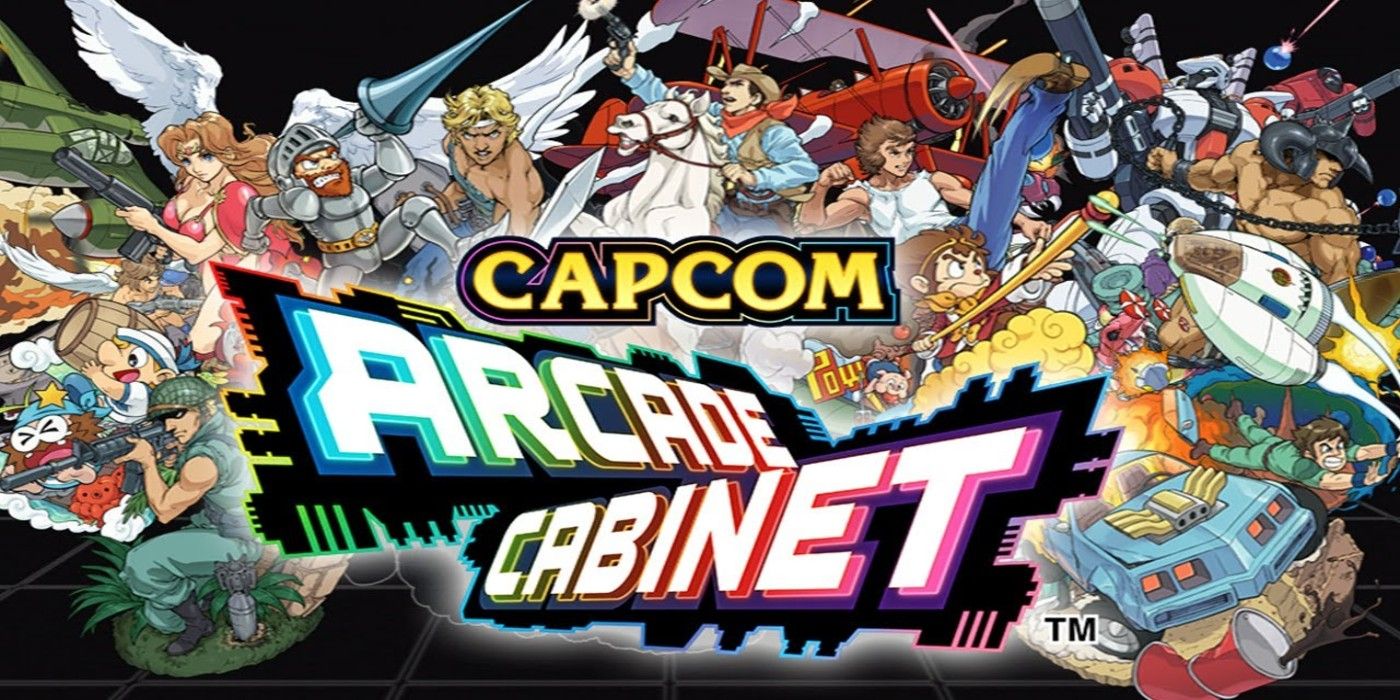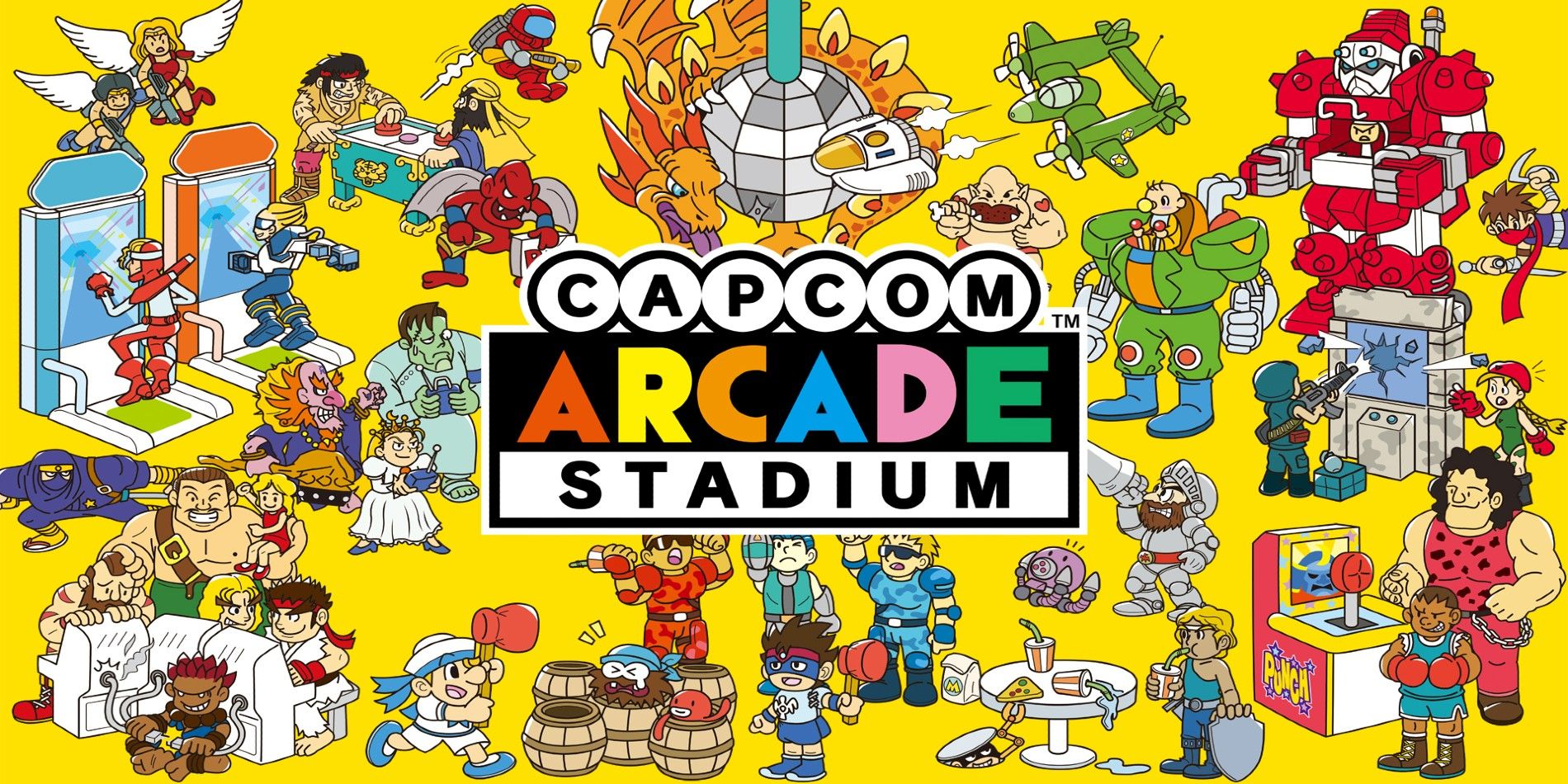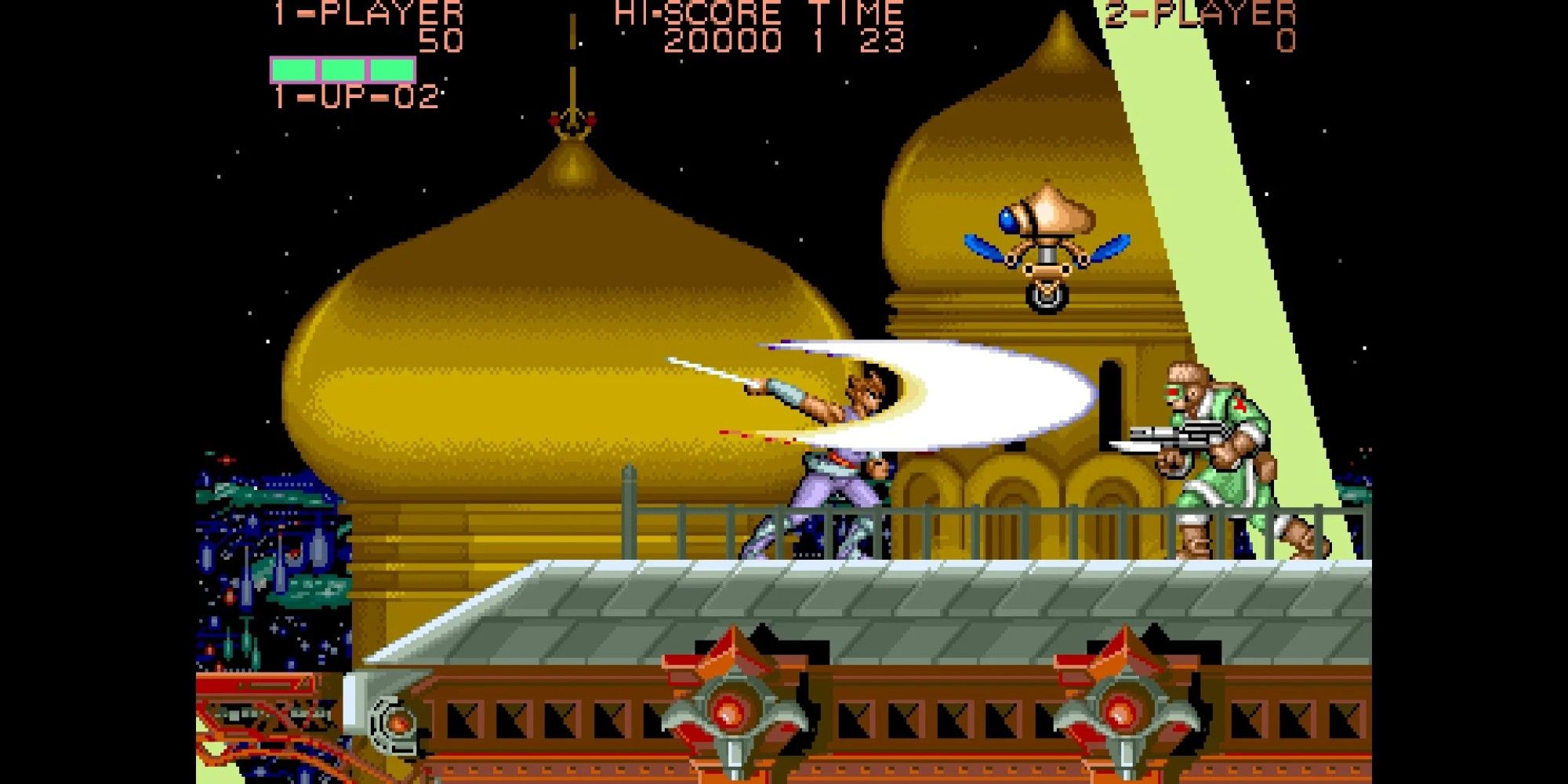Capcom is bringing a collection of 32 classic arcade games to the Nintendo Switch. One of many titles announced at The Game Awards, Capcom Arcade Stadium will launch in February 2021 with a free download of 1943: The Battle of Midway. The additional thirty games will be available as DLC, starting with the original Ghosts 'n' Goblins as a stand alone add-on.
The way the remaining games will be sold is giving retro gaming fans déjà vu, but not in the warm and fuzzy way. Arcade Stadium is eerily similar to the 2013 PlayStation 3 and Xbox 360 release Capcom Arcade Cabinet. That collection of 15 games began its roll-out in February 2013, and it was a different beast than previous classic game compilations.
Instead of releasing all of the games on one disc, it staggered its releases into five packs of DLC. Each pack featured three classic arcade games from the '80s, including games like Commando and The Avengers. Customers could buy any of the packs individually, and they could also buy the games starting a month after their pack debuted. Capcom encouraged customers to buy all of the games, in packs or individually. Players who purchased all 15 games received two additional games, shooters 1943 Kai and Vulgus, for free. It was a nice bonus for early adopters, but earning those free games cost them in the long run.
Buying all of the packs as they were released cost $45, while buying each game individually cost $53. As is usually the case, patient customers paid less than early adopters. Capcom released the entire collection of 17 games in May 2013 for $29.99. Arcade Cabinet's release schedule and pricing left a bad taste in the mouths of players and critics. The game received a lukewarm critical reception as well, with Metacritic averages below 70 percent on the both consoles. Beyond the price, the collection's lack of big name titles and a general lack of excitement over another retro game collection put it in the middle of the pack.
This new title, Arcade Stadium takes that model and nearly doubles the number of games available. It breaks them into three 10 packs covering different eras: Dawn of the Arcade (1984-1988), Arcade Revolution (1989-1992) and Arcade Evolution (1992-2001). If Capcom has plans to sell the games individually, beyond Ghosts 'n' Goblins, it hasn't announced them yet. Like the original Arcade Cabinet, the complete collection will be available for purchase, with an "all-in" pack.
Arcade Stadium is an upgrade over the Arcade Cabinet in some significant ways. Spanning the better part of two decades, it offers a wider variety. That includes iconic games like Strider and Street Fighter II Turbo Edition, in addition to more obscure games like Cyberbots. Fans of a specific era can choose a pack that corresponds to their interests.
However, as exciting as all that is for retro gamers of all ages, it is irritating for those who remember the Arcade Cabinet to see Capcom returning to this release strategy. For one thing, some of the games from the Arcade Cabinet are making a return appearance. While it's not from two console generations ago, it has to be somewhat disappointing for Capcom fans to see so many retreads, especially if they shelled out the money for the games as they were released seven year ago.
It's also a double-edged sword to see games like Street Fighter titles and Final Fight make the cut. As undeniably good and important as those games are, it's disappointing to see underutilized games like the Darkstalkers series neglected. It also makes Street Fighter 30th Anniversary feel redundant.
This is part of a trend Nintendo fans will be familiar with. Games purchased on the Wii couldn't be transferred to its successor, the Wii U. That continued with the transition to the Switch, which abandoned the concept of the Virtual Console entirely in favor of tying its retro games library to a Nintendo Switch Online subscription, a service that many have found disappointing.
Video game companies mining their back catalogs have always been a mixed bag. The incentive of reselling older games is the only way larger companies will engage in any kind of game preservation. On one side, this does give gamers a chance to relive their childhood favorites. It also gives younger players a chance to enjoy games they wouldn't have a chance to play otherwise. The downside is that these companies have normalized the practice of re-selling consumers classic games every console generation, and that's a price gamers shouldn't have to pay.



